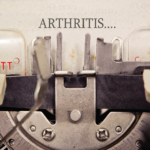NEW YORK (Reuters Health)—The selective interleukin-17A inhibitor ixekizumab improved signs and symptoms of active psoriatic arthritis (PsA) in patients who had failed prior biologic therapy in the phase 3 SPIRIT-P2 trial.
The SPIRIT-P2 trial joins the earlier phase 3 SPIRIT-P1 trial, which showed that ixekizumab was safe and effective in PsA patients not previously treated with biologics.
“Collectively, the SPIRIT trials suggest that ixekizumab is an alternative treatment of psoriatic arthritis regardless of whether patients were previously untreated with biological therapy use or who had inadequate responses to TNF inhibitor therapy,” the study team said online May 24 in The Lancet.
The data also further support “growing evidence” that IL-17A is “driving the pathogenesis” of PsA, note Dr. Peter Nash of the University of Queensland Rheumatology Research Unit in Australia and colleagues.
SPIRIT-P2 was a 24-week double-blind, randomized, placebo-controlled study conducted at 109 centers in 10 countries in Asia, Australia, Europe and North America. The study enrolled 363 patients with PsA who failed TNF-inhibitor therapy for efficacy or tolerability reasons.
Patients were randomly assigned to receive a subcutaneous injection of 80 mg ixekizumab every four weeks (n=122) or every two weeks (n=123) after a 160 mg starting dose or placebo (n=118).
At week 24, significanlty more patients on active treatment achieved the primary endpoint of at least 20% improvement in American College of Rheumatology response criteria (ACR20). Fifty-three percent of patients on ixekizumab every four weeks and 48% on the drug every two weeks achieved ACR20 compared with 20% on placebo.
Treatment with ixekizumab also led to improvements in patient-reported physical and mental outcomes and resolution of dactylitis. Improvement in enthesitis was also noted over the course of the study.
At week 24, roughly a third of patients with plaque psoriasis affecting 3% or more of their body surface area had complete resolution of their psoriatic lesions.
“Therapeutic response was rapid,” with improvements in both arthritis as early as one week of treatment and in psoriasis as early as week two, the researchers say.
Ixekizumab was “superior to placebo in achieving minimal disease activity, a validated measure of disease activity in patients with active psoriatic arthritis. Attainment of minimal disease activity has been associated with less radiographic disease progression and improved health-related quality of life,” they write.
The safety profile was consistent with prior studies of ixekizumab.
During the study, serious adverse events were reported in three (3%) patients on ixekizumab every four weeks, eight (7%) on ixekizumab every two weeks, and four (3%) on placebo. No deaths were reported.
Infections were reported in 39% of patients on ixekizumab every four weeks, 38% on ixekizumab every two weeks, and 30% of patients on placebo. Three (2%) serious infections in patients taking ixekizumab every two weeks were reported.
The researchers note that 30% to 40% of patients with PsA fail to respond adequately to TNF inhibitors while others become resistant to treatment or develop safety issues. Based on available data to date, ixekizumab dosed every two or four weeks represents a safe and effective alternative in this patient population, they conclude.
The study was funded by ixekizumab maker Eli Lilly and Company. Several authors reported ties to the company.
Reference
Nash P, Kirkham B, Okada M, et al. Ixekizumab for the treatment of patients with active psoriatic arthritis and an inadequate responseto tumour necrosis factor inhibitors: results from the 24-week randomised, double-blind, placebo-controlled period of the SPIRIT-P2 phase 3 trial. Lancet. 2017 May 24. pii: S0140-6736(17)31429-0. [Epub ahead of print]


